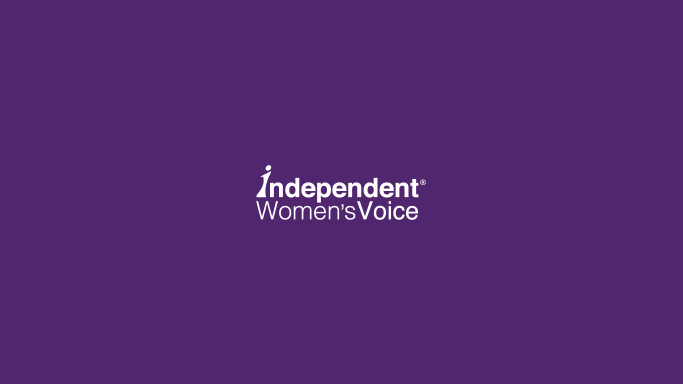There is no way you can talk about government-financed “end-of-life” chats with the sick elderly and not sound spooky—and that’s how beleaguered Rep. Jim Moran came across last night at his town hall meeting (here and here) as he tried to explain away the scariness of such panels.
Speaking before a Reston, Va. Town hall crowd composed of 2,500 spirited people, Moran—who isn’t much of a rhetorician to begin with—brought along Dr. Howard Dean for moral support. Well, more than moral support—Dean, trim in a preppy-tan suit, repeatedly sprang to his feet with facts and insights, when Rep. Moral appeared to be flailing.
I even agreed with him once—Dean said that the drugs companies do better as a profit-making industry, citing new research that might not have developed without the nefarious profit motive. This was in response to a question by a town hall questioner as to why his “beloved Democrats” didn’t just admit that our medical system can’t be reformed along free-market lines.
But back to the “death panels”—I mean end-of-life chats with your physician. Moran’s weakest moment came when he admitted that of course the doctors would be paid for such counseling because doing these little sessions will prevent them from dashing off to perform surgeries (in more ways than one: “Mrs. Jones, do you really feel that you want to put yourself through another operation in your shape?”)
Moran had a chart of “Myths” versus “Facts;” the death panels were a “myth.” Unfortunately for Moran, there is simply no way a politician wins when he talks to you about your living will and other deeply private “end-of-life” decisions unless he is speaking at a Hemlock Society convention. I found his arguments for such panels DOA. Most of us intuitively sense that this isn’t the moment for government involvement and most of us also sense that the aimed-for living will is not supposed to say, “Do everything within your power—spare no expense. I’m worth every penny.”
Moran’s second worst moment—actually, it was second, third, and fourth worst moments, because the question was asked by three people, and three times Moran tried, quite transparently, to skirt the answer: Will you, Rep. Moran, get on the public plan the rest of us will most likely end up? Moran rambled on about how he was on a government plan that most government workers have and that he would be one of those folks who “if you like the plan you have, you can keep it.” You better believe Moran likes the plan he has and that he intends to keep it—as do all of our elected emperors and empresses.
I was disappointed that nobody asked Moran to explain just how private companies can survive if a public option competes with unfair advantage. Moran spoke of “competition” which Obamacare would bring to our healthcare system. Supporters of Obamacare have embraced the word “competition” because they know it’s popular. It is incumbent upon opponents of the public plan to call their bluff. Nobody called “moderate” Barack Obama’s bluff during the presidential campaign, but I think voters are more wary now.
One other moment should be noted: Asked why the massive bill featured no torte reform, a policy that would in and of itself vastly curtail medical costs, both Dean and Moran gave the same answer: politics. Moran went on to say that including torte reform would have meant that the bill would have had to go through the Judiciary Committee, which he described as “the most political committee” in the House. The bill would have never made it out of committee. Torte Reform supporters: this is your TV spot. It will be smashing.
Moran’s town hall reportedly was about 60-40 in favor of Obamacare, and though he turned in a very unpolished, irritable performance, I felt that Moran had given himself cover to vote for Obamacare and avoided unhelpful TV moments. I was wrong on the latter—the evening news featured an impassioned woman with an accent talking about having lived under socialized medicine, “and it ain’t working.” Moran seemed to be a man who just wanted to somehow get through the evening—he was often annoyed with the raucus crowd. He had a hard time reading the names of questioners, and resorted to several passive-aggressive tactics: A rabbi prayed about the “harsh winds of indifference that had blown over Capitol Hill in recent years (let’s see–who could that be), and George Washington’s Rules of Civility were passed out before the meeting. I don’t know about you, but I don’t need etiquette tips from Rep. Moran.
For me the most disturbing moment came when one anti-Obamacare protestor was escorted from the auditorium (alas, deservedly so, I thought), and the crowd chanted, “Kick him outk kick him out.” There is something unappealing about a crowd ganging up on somebody—especially as he is leaving, peacefully, if certainly not particularly gracefully.
Senator John McCain held a town hall in Arizona earlier in the day—McCain was much better than the hopped up, out-of-touch John McCain who manically roamed the stage during one of his debates with Barack Obama. But he was in friendly territory—his town hall was a love fest, even though there were several supporters of Obamacare called upon to ask questions. They were in a small minority but they were applauded and treated with politeness. Although probing questions about healthcare were asked, the concerns of the crowd went deeper. “For the first time in my life, I am worried about my liberty,” said one town hall participant. McCain told the crowd that, if it weren’t for them and people like them, healthcare would already have been “rammed” through Congress and we’d be stuck with only “laments.”
“We are seeing a quiet revolution,” McCain said. That’s the take-away quote from McCain’s town hall. But we have not by any means stopped Obamacare yet.

